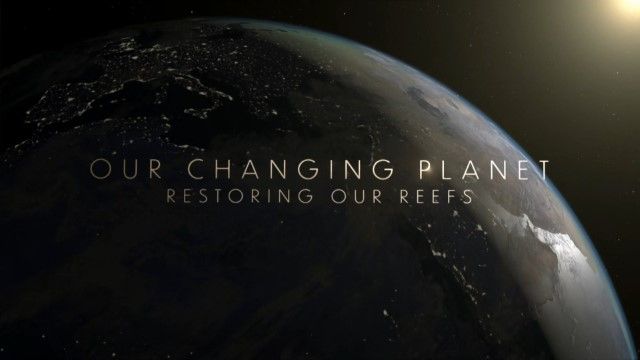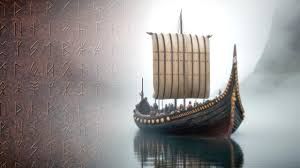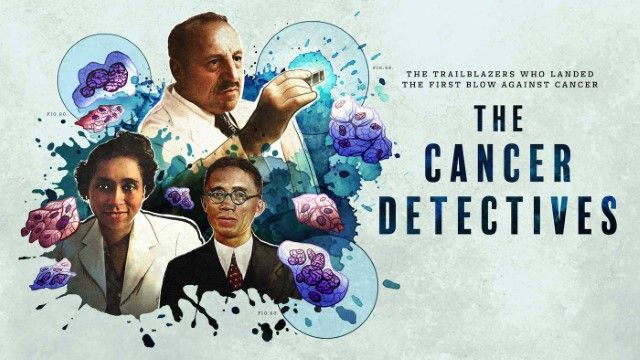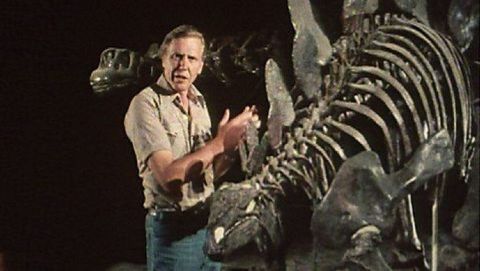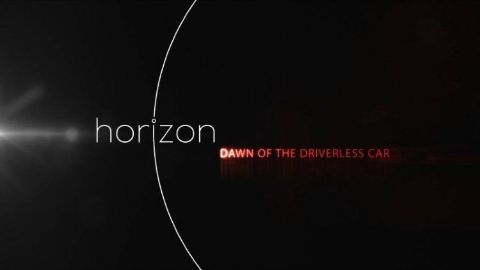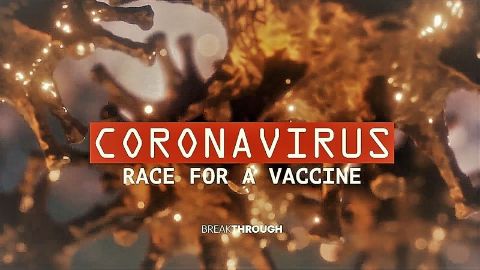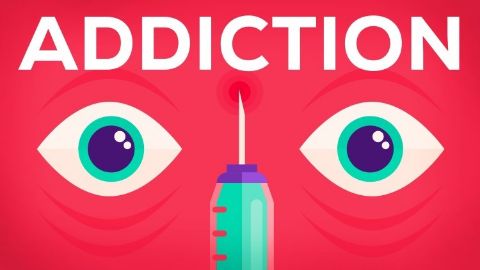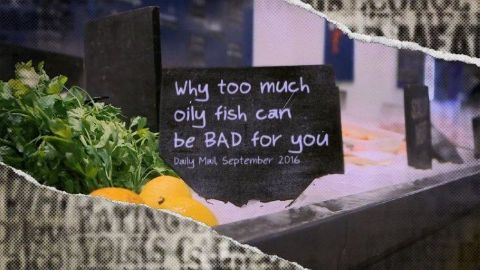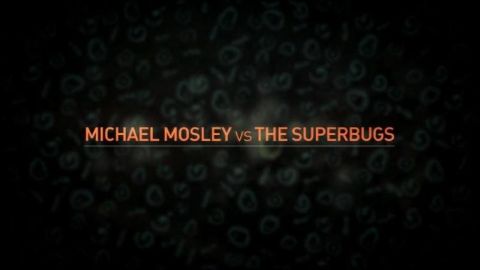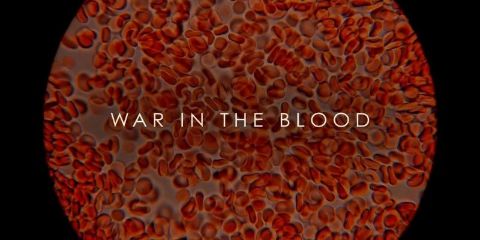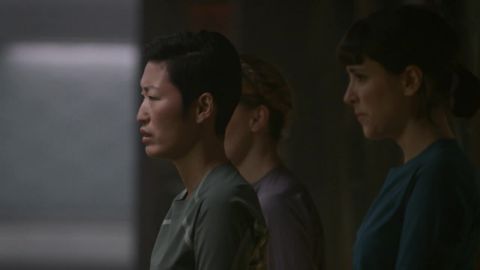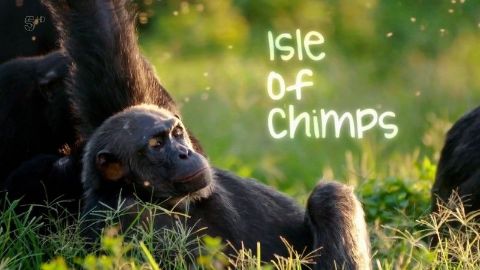Latest Documentaries
In the third year of this seven-year project examining the issues facing the planet’s most threatened ecosystems, Dr. M. Sanjayan visits the Maldives to take an in-depth look at coral reefs and the urgent efforts to help them survive climate change.
S3E1 • 2024 • Nature
The life and work of M.C. Escher is presented primarily through his own words in the form of his writings being read against a backdrop of images associated to him, including archival footage of himself and images of his drawings. Many further details are provided by surviving family members. Escher himself considered what he did being caught between the worlds of art and mathematics - he not very good at either - his drawings always having an element of geometry. He made a conscious decision to work in monochromatic black and white realizing that he would be missing being able to convey ideas that are inherent with color. The evolution to two of his later periods is discussed, namely his series of drawings of the human eye, and what would become his ultimate fascination, that of the concept of infinity, whether it be real, as in the circle or the study of a man viewing a picture of himself viewing a picture of himself and so on, or perceived through illusions, such as his never-ending staircase. The documentary is buttressed by commentary from fan, musician Graham Nash who believes his brilliance has not yet been fully appreciated. Further Information
2021 • People
We often assume that advanced technology will make it easy for aliens to colonize space. But what if space exploration is always difficult, no matter how advanced you are? Let’s travel back in human history, to the colonization of Oceania over 5000 years ago, to find parallels between ancient explorers and extraterrestrial civilizations.
In a Nutshell • 2024 • Astronomy
The mid-10th-century reign of Harald Bluetooth as king of a newly unified, powerful and Christianized Denmark marked the beginning of a second Viking age. But the reign was not to last with the Normans finally winning the English Kingdom in 1066. We look at the final days of the Viking empire.
S1E6 • Vikings: The Rise and Fall • 2022 • History
Political turmoil in Norway leads a voyage of discovery west. The Vikings discover Iceland where they established lasting settlement. Further exploration from Iceland leads to the discovery of Greenland and to the shores of Newfoundland, making them the first Europeans to discover America.
S1E5 • Vikings: The Rise and Fall • 2022 • History
The siege of Paris in 885 was the culmination of the Viking invasions of Francia. We look at the persistent Viking attacks on Francia and the enduring presence of the Scandinavians on the Frankish Empire and beyond.
S1E4 • Vikings: The Rise and Fall • 2022 • History
The "Silk Road" opened up a world of trade for the Scandinavians in the East. Seeking further wealth, the Vikings known in the East as "the Rus" attacked Constantinople in 860. The Rus became a permanent and feared fixture in the Byzantine Empire.
S1E3 • Vikings: The Rise and Fall • 2022 • History
The Siege of York occurred from 866 when the Great Heathen Army laid claim to the Northumbrian capital of York. We look at the major battles, players and strongholds of the York battle and how the Vikings later came to control much of the 9th Century England.
S1E2 • Vikings: The Rise and Fall • 2022 • History
An attack on a small religious community on the holy island of Lindisfarne in AD 793 heralded the start of the Viking Age of conquest and expansion. For 200 years, the longships from Scandinavia threatened all of Europe. But it was far from their first attack. We reveal how the Vikings' reign of terror began in Scandinavia.
S1E1 • Vikings: The Rise and Fall • 2022 • History
Follows a Ukrainian battalion on the frontline of the war against Russia, filmed by the soldiers themselves as they try to defend a vital railway line, the capture of which would enable Russia to mount a direct attack on Ukraine's second largest city Kharkiv. The film examines the lives of the 99-strong military company as they face sustained Russian assaults, presenting a ground-level view of the war through the eyes of the troops fighting it.
2024 • History
The story of how the life-saving cervical cancer test became an ordinary part of women's lives is as unusual and remarkable as the coalition of people who ultimately made it possible: a Greek immigrant, Dr. George Papanicolaou; his intrepid wife, Mary; Japanese-born artist Hashime Murayama; Dr. Helen Dickens, an African American OBGYN in Philadelphia; and an entirely new class of female scientists known as cyto-screeners. But the test was just the beginning. Once the test proved effective, the campaign to make pap smears available to millions of women required nothing short of a total national mobilization. The Cancer Detectives tells the untold story of the first-ever war on cancer and the people who fought tirelessly to save women from what was once the number one cancer killer of women.
2024 • Health
The search for Pablo Escobar as told by US Drug Enforcement Administration agents, with never-before-seen footage of Escobar's life and capture.
2018 • People
Recommended Documentaries
It’s an odd quirk of relationships that, after a time, we tend to develop the sincere conviction that it is all always our partner’s fault.
The School of Life • 2016 • Lifehack
This episode is devoted to the evolution of reptiles. They are not as restricted as their amphibian ancestors, since they can survive in the hottest climates. The reason is their scaly, practically watertight skin. The scales protect the body from wear and tear and in the case of some species of lizard, such as the Australian thorny devil, serve to protect from attack. The horned iguana from the West Indies is also one of the most heavily armoured. The skin is rich in pigment cells, which provide effective means of camouflage, and the chameleon is a well-known example. Temperature control is important to reptiles: they cant generate body heat internally or sweat to keep cool.
7/13 • Life on Earth • 1979 • Nature
Documentary following endangered species fighting for their survival. A painted wolf matriarch's feud with her daughter threatens to bring the dynasty down.
The Solar System is home to a vast array of asteroids and comets with experts taking a journey deep into space to examine these mysterious wanderers in the search to reveal the origins of the universe and the human race itself.
S3E3 • Mysteries of our Universe: Our Solar System • 2021 • Astronomy
Horizon takes the ultimate trip into the unknown, to explore a dizzying world of cosmic bounces, rips and multiple universes, and finds out what happened before the big bang.
Remote islands offer sanctuary for some of the planet's strangest and rarest creatures. The rare pygmy three-toed sloth enjoys a peaceful existence on an idyllic Caribbean island, while nesting albatross thrive in predator-free isolation. But island life always comes at a cost. On the Galapagos Islands, young marine iguana must escape an onslaught of deadly racer snakes the moment they hatch from the sand. On the sub-Antarctic island of Zavodovski, life gets more extreme still. Every day, one and a half million penguins risk being battered against the rocks by fierce waves as they try to get on and off the island.
S1E1 • Planet Earth II • 2016 • Nature
Technology Documentaries
The years following the First World War saw flying take off as serious business. Previously unimagined opportunities opened up, among them, skywriting and sightseeing tours. Flying became a bigger feature of life all around the world, not just as a novelty "adventure" for rich people but as a mode of transport available to just about anyone.
4/13 • The Amazing World Of Aviation • 2009 • Technology
In South Korea, China and Saudi Arabia, in Abu Dhabi and in Russia, a new kind of city is now under construction. These are prototypes of green, hyper-connected cities that are stuffed with digital technology and ecological equipment.
S1E1 • Cities of Tomorrow • 2016 • Technology
This episode reveals the fascinating chain of events that made quick and safe travel possible even across the greatest distances a possibility. From the Rolls Royce aero-engine factory in Derby, Michael Mosley, Prof Mark Miodownik and Dr Cassie Newland tell the amazing story of three more of the greatest and most transformative inventions of all time, the steam locomotive, the internal combustion engine and the jet engine. Our experts explain how these inventions came about by sparks of inventive genius and steady incremental improvements hammered out in workshops. They separate myth from reality in the lives of the great inventors and celebrate some of the most remarkable stories in British history.
Part 2 • The Genius of Invention • 2013 • Technology
Food- human life can't exist without it. It's a city's most important source of energy. In New York alone, 8 million people consume 10,000 tonnes of food every day. Without new supplies, cities will run out of fresh food in a matter of days.
S1E2 • How Cities Work • 2013 • Technology
The car has shrunk the world, increased personal freedom and in so many ways expanded our horizons, but there is a flipside. Fumes from car exhausts have helped to destroy our environment, poisoned the air we breathe and killed us in far more straightforward ways. But all that is going to change. Horizon enters a world where cars can drive themselves, a world where we are simply passengers, ferried about by wholesome green compassionate technology which will never ever go wrong. And it is almost here. Horizon explores the artificial intelligence required to replace human drivers for cars themselves, peers into the future driverless world and discovers that, despite the glossy driverless PR (and assuming that they really can be made to work reliably), the reality is that it might not be all good news. From the ethics of driverless car crashes to the impact on jobs, it might be that cars are about to rise up against us in ways that none of us are expecting.
Horizon • 2017 • Technology
One of the ancient world's most iconic buildings, the Colosseum is a monument to Roman imperial power and cruelty. Its graceful lines and harmonious proportions concealed a highly efficient design and advanced construction methods that made hundreds of arches out of 100,000 tons of stone. In its elliptical arena, tens of thousands of gladiators, slaves, prisoners, and wild animals met their deaths. Ancient texts report lions and elephants emerging from beneath the floor, as if by magic, to ravage gladiators and people condemned to death. Then, just as quickly, the Colosseum could be flooded with so much water that ships could engage in sea battles to the delight of the crowd.
S1E1 • Building Wonders • 2020 • Technology
Health Documentaries
According to current estimates, a widely available COVID-19 vaccine will likely be available within the next 12 months. Why so long? Learn how vaccines are developed and explore the current state of the coronavirus landscape, guided by the scientists on the ground trying to find a solution.
Breakthrough • 2020 • Health
This video is adapted from Johann Hari's New York Times best-selling book 'Chasing The Scream: The First and Last Days of the War on Drugs.' For more information, and to take a quiz to see what you know about addiction, go to www.chasingthescream.com
In a Nutshell • 2015 • Health
Gloria Hunniford and Chris Bavin They investigate claims that oily fish may not be the wonder food it is often said to be after reports state it could even be dangerous.
S2E1 • Food: Truth or Scare • 2017 • Health
For 70 years we've waged war against harmful bacteria using antibiotics. But bacteria are fighting back and today more and more bacterial infections are becoming resistant to antibiotics. Drug-resistant superbugs are spreading; not just MRSA - also TB, pneumonia, e-coli. In Britain, hundreds are already dying of these infections - mainly the very young or the frail and elderly. But experts warn that unless we crack the problem, by 2050 we'll be facing a massive health crisis with over 10 million people dying of resistant bacterial infection worldwide every year.
2017 • Health
Follows two patients through groundbreaking 'first in-human' trials for CAR T-cell therapy, a treatment described as the beginning of the end of cancer. Not allowed to meet and separated by two floors of a hospital, 53-year-old Graham and 18-year old-Mahmoud are nevertheless bound together by their commitment to the treatment and their faith in the science. Terminally ill, the trial represents their only option. How do their ages and life experiences affect their physical and emotional response? For Martin Pule, the scientist who has developed the treatment, the responsibility of curing patients is both exciting and daunting. He knows he stands on the cusp of a breakthrough that could radically change the way we treat cancer. At the heart of this film is the complex relationship between the patients and the clinical team. How much hope can the patients be given when they are effectively going into these trials as human guinea pigs? The patients and clinical team must weigh up hope with realism and their response is a profound and revealing reflection of the human condition.
2019 • Health
For every pound we spend on food shopping, 77p goes to the supermarkets, giving them a huge influence over what we eat. But can we trust the supermarkets to tell us the truth about what we are buying and how it was produced? Or do their profits come first? In an experiment to discover the hidden truths about our everyday foods, Horizon has built the first ever truly 'honest supermarket'. Drawing on the latest scientific research and leading experts from across the UK, the team have built a supermarket where the products are labelled with the real story of how they are produced and their effect on us and the environment. We invite the British public to come in and discover the truth about their favourite foods. And in our on-site lab, new scientific discoveries reveal the food facts the supermarkets aren't telling you. Presented by Dr Hannah Fry and dietician Priya Tew, The Honest Supermarket takes a cold hard look at what's really going on with the food we eat. From new research that reveals you're likely to be ingesting plastic particles along with your bottled water to the lab tests that uncover the disturbing truth about just how old your 'fresh' supermarket fish really is… You'll never look at the food on your supermarket shelves in the same way again.
Randoms! Documentaries
IMSF and Lukrum establish a tenuous coexistence with a common water source. In the present day on Earth, activists protest Arctic oil drilling.
Most of us are on the Internet on a daily basis and whether we like it or not, the Internet is affecting us. It changes how we think, how we work, and it even changes our brains.
2013 • Lifehack
Michael Mosley investigates the dramatic rise in e-cigarettes. They're everywhere these days, but what does the latest scientific research on them reveal? Michael reveals what e-cigarettes are really doing to your health. Are they really better for you than cigarettes? What is actually in them? Is passive vapour harmful? And can they really stop you from smoking? Michael meets some of the scientists around the world studying them, asks a group of volunteers to try to give up smoking regular cigarettes using them, and even takes up 'vaping' himself, smoking an e-cigarette every day for a month to see the effects on his own health - no easy task for such a committed non-smoker.
In the 1990s, one million chimpanzees lived across Central Africa. Since then, habitat loss, hunting for bushmeat, and the exotic pet trade has caused their population to crash to just 200,000. But on Ngamba Island, a semi-wild sanctuary just off the coast of Uganda's Lake Victoria, a team of caregivers is dedicated to giving them another chance in life. Visit this remarkable safe haven, where victims--most arriving as orphaned babies--recover from mental trauma, form a new family, and learn how to be chimps.
2019 • Nature
How many times does the chorus repeat in your favorite song? How many times have you listened to that chorus? Repetition in music isn’t just a feature of Western pop songs, either; it’s a global phenomenon. Why? Elizabeth Hellmuth Margulis walks us through the basic principles of the ‘exposure effect,’ detailing how repetition invites us into music as active participants, rather than passive listeners.
From the Stone Age to the Silicon Age, materials have helped drive forward our civilisation. By manipulating materials we have been able to transform our world and our lives - and never more so than in the past century when we have discovered and designed more materials than at any other time in human history. (Part 2: Plastic) Professor Mark Miodownik tells the story of plastics - created in the lab, they have brought luxury to the masses and shaped the modern age. He recounts tales of the mavericks responsible for some of plastic's most outrageous failures and heady successes, from the explosive attempts to make a replacement for ivory billiard balls to the ultimately ubiquitous Bakelite. Investigating at atomic level, Mark discovers the properties that have allowed plastics to dominate our world and reveals how the next generation of plastics will take its inspiration from nature, creating man-made materials which behave as though they are alive and which could help rebuild the human body.
S1E2 • How It Works • 2012 • Technology
